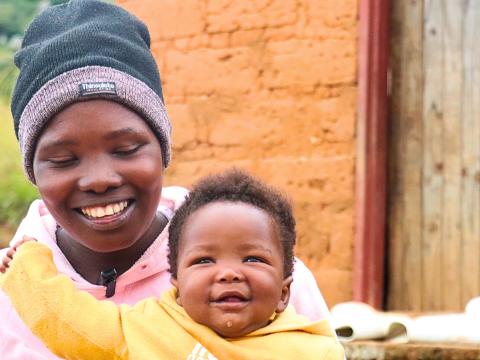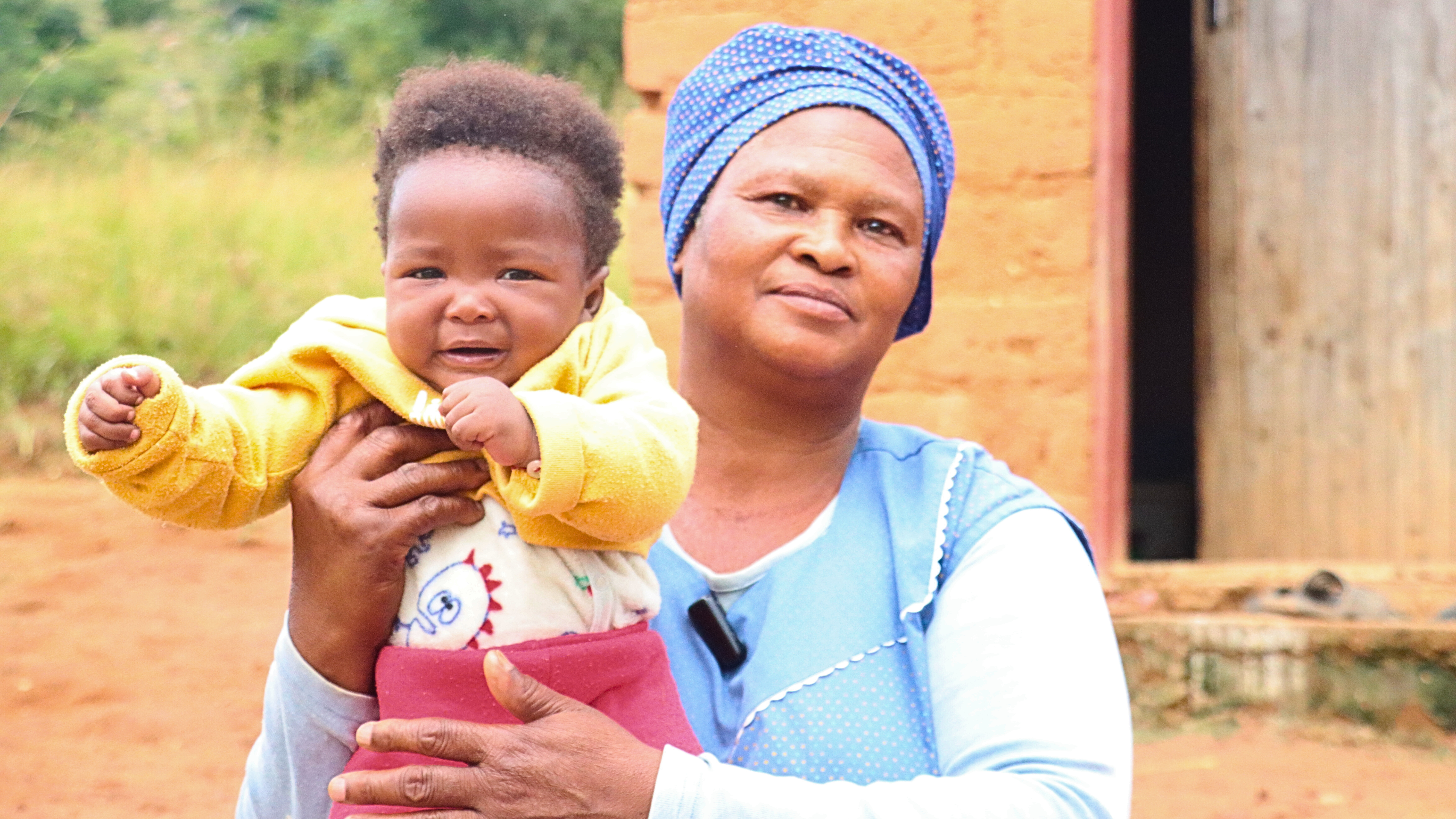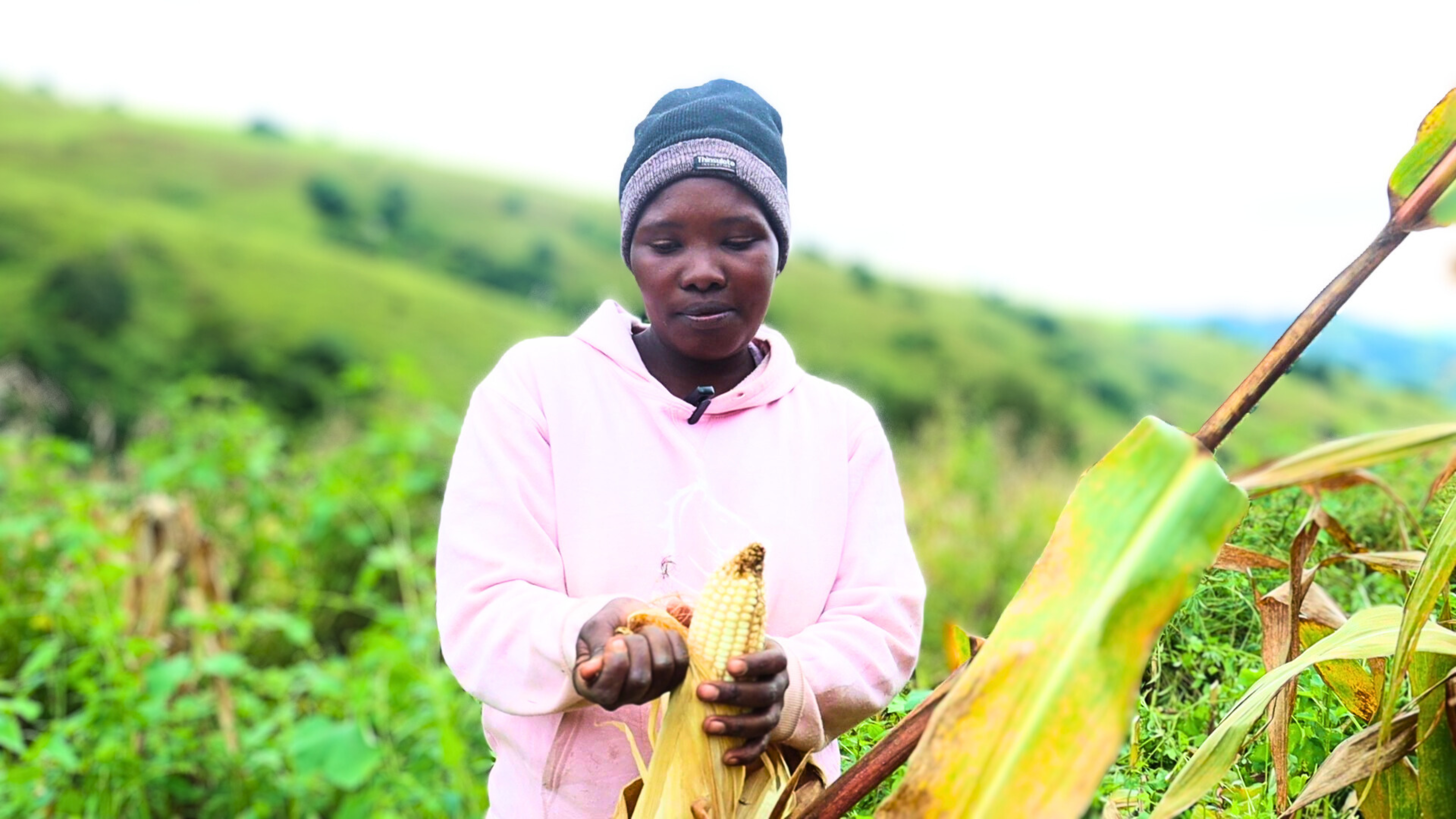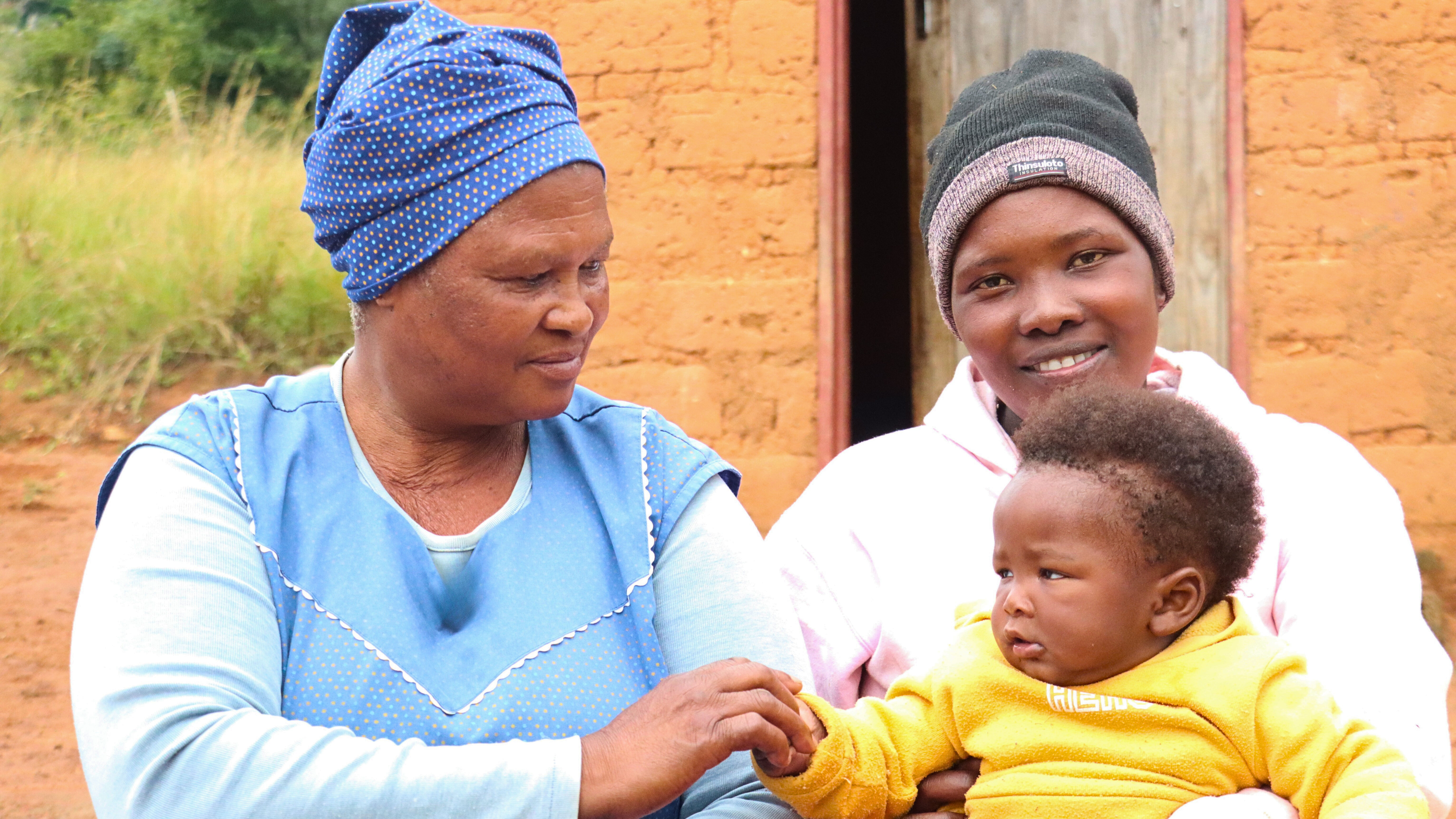A Healthy Start for Baby Ayabonga

In the remote mountains of World Vision Eswatini's (WVE’s) Ntondozi Area Programme, six-month-old Ayabonga is growing strong and healthy, a testament to the impact of Timed and Targeted Counselling (ttC) health interventions implemented by Rural Health Motivators (RHMs)
World Vision's ttC is a family-inclusive behavior-change communication (BCC) approach, targeting families of young children, especially the most vulnerable, through home visits by community health workers (CHWs) to promote healthy practices. To ensure the sustainability of such interventions in Eswatini, World Vision implements the ttC through the RHMs’ Programme, which is led by the Ministry of Health, operating in some of the most hard-to-reach communities.

Ayabonga's mother, Silungile’s journey into motherhood was filled with challenges due to the isolation of her village and the lack of access to nearby healthcare services. Testament to this is the difficulty it took to reach Silungile’s home. Even with the use of a high-clearance vehicle, the team still had to park the car and walk about three (3) kilometres to reach the family’s home. They could not drive any further because of the terrain, so, walking was the only way to reach their destination.
Silungile’s family survives through farming, and the nearest healthcare clinic is miles away, making it difficult for her to access regular medical care. During her pregnancy, she initially relied on herbal concoctions, believing they were sufficient to ensure the health of her baby.

“I thought I could manage with drinking the home-brewed herbal remedies (“timbita”),” Silungile recalls. “I didn’t realise how important it was to go to the clinic regularly.”
However, things changed when Sonto Hlophe, a dedicated Rural Health Motivator, began visiting Silungile when she was three months pregnant. Sonto provides regular health check-ups, education, and guidance to expectant mothers.
“I started visiting Silungile when she was still pregnant,” says Sonto, whose work in rural communities has been life-changing for many. “She was solely relying on home-made herbal drinks whose strength and toxicity could harm her and the baby, but I explained to her how important it was to attend regular antenatal care (ANC) check-ups. I could see her doubt, but I kept encouraging her and she eventually understood the importance of the clinic visits.”
With limited resources, Silungile did everything she could to make sure she attended the clinic check-ups.
"We don’t have much money from farming, but I made sure to visit Luyengo Clinic whenever I could. It wasn’t easy, but I now understood that it was what was best for me and my baby,” Silungile shares.
When Ayabonga was born in August 2024, Silungile was overwhelmed with joy and relief. “I was so happy when Ayabonga arrived. He was healthy and I knew I had made the right choice by attending the clinic check-ups,” she says, beaming with pride.
She believes that without Sonto’s unwavering support and the regular ANC visits, things might have turned out very differently. “If I had continued relying only on home remedies, I’m not sure what would have happened. Sonto’s guidance saved me from complications. I truly believe I wouldn’t have been able to deliver safely without her support.”
Today, Ayabonga is exclusively breastfed and his mother continues to follow the guidance she received from both Sonto and the clinic. “I’m so grateful for all the help from Sonto and the clinic staff,” Silungile says. “They helped me give my baby the best start in life.”

Even in the most remote and isolated communities, the ttC interventions, implemented by the Rural Health Motivators, with support from World Vision and other partners, ensure that mothers and babies have access to the essential care they need. Through these dedicated community health workers, mothers like Silungile receive the support they need to have a healthy pregnancy and delivery, as well as ongoing care that helps ensure their babies thrive. This aligns with World Vision’s ENOUGH Campaign to End Child Hunger and Malnutrition.
“This is the true power of community-based healthcare,” says Sonto. “We may be far from the big hospitals, but with the right support and education, we can save lives.”
The Ntondozi Area Programme, which covers the two Tinkhundla (constituencies) of Lamgabhi and Ntondozi, started operating in 2024, with support for a projected 13 years from World Vision Korea.
In remote communities, where healthcare facilities are miles away, World Vision’s support of the RHMs programme continues to be a lifeline, empowering families with the tools they need to ensure healthy children and communities.